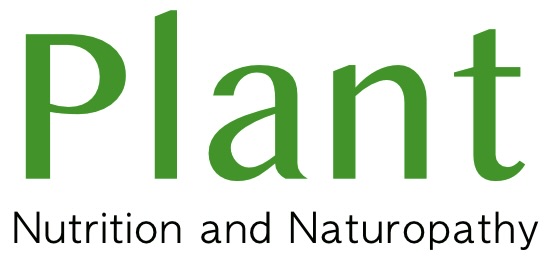What Is Burnout, Really?

Burnout isn’t just being tired after a long day. It’s a deeper, more chronic kind of exhaustion—physical, emotional, and mental fatigue that doesn’t go away with a good night’s sleep. You might feel detached from the things you used to care about, or like you’re just going through the motions.
The World Health Organisation (2019) defines burnout as a syndrome resulting from chronic workplace stress that has not been successfully managed. But the truth is, burnout doesn’t just happen at work. It can happen in parenting, caregiving, volunteering, or even managing a busy household.
Signs You Might Be Experiencing Burnout:
– Constant exhaustion – even after rest
– Feeling numb, irritable, or hopeless
– Lack of motivation or enthusiasm
– Struggling to keep up with daily responsibilities
– Brain fog, forgetfulness, or lack of focus
– Trouble sleeping (or oversleeping)
– Physical symptoms like headaches, back pain, or frequent illness
If this sounds familiar, know that you’re not alone and more importantly, you’re not broken. Burnout is a signal from your body and mind that something needs to change.
The Invisible Burnout of Motherhood
Being a mother (or caregiver) adds a layer to burnout that often goes unspoken.
Mothers are constantly giving—time, energy, attention, love—sometimes without limits. You juggle meals, school drop offs, emotional support, bedtime routines, and often work or other responsibilities too. The pressure to “do it all” while appearing calm and competent can be crushing.
Many mums suffer in silence because:
– Society expects selflessness from mothers
– Guilt kicks in when trying to set boundaries
– Asking for help feels like admitting failure
– There’s no “clocking out” when you’re raising kids
This type of burnout is especially harmful because it’s so easily dismissed. But no one can pour from an empty cup.
How a Whole Food Plant Based Diet Can Help Rebuild You
Food isn’t a magic cure but it’s a powerful tool. A whole food, plant based (WFPB) diet focuses on natural, nutrient rich foods like fruits, vegetables, whole grains, legumes, nuts, and seeds. These foods can help your body recover and give your brain the fuel it desperately needs.

1. Restores Energy Naturally
WFPB meals are packed with complex carbohydrates and fibre, which release energy slowly and steadily throughout the day, unlike processed foods that cause energy crashes (Tuso et al., 2013).
Try: Brown rice with lentils and roasted veggies, or a smoothie with spinach, banana, chia seeds, and almond milk.
2. Supports Hormones and Mood
Nutrient dense foods provide B vitamins, magnesium, iron, and omega-3s, which are crucial for mood balance and nervous system support (Rao et al., 2008). These nutrients can help reduce anxiety, depression, and even PMS symptoms.
Mood boosters: Leafy greens, oats, chickpeas, walnuts, flaxseeds, and sweet potatoes.
3. Reduces Inflammation
Burnout is a chronic stress state and stress causes inflammation in the body. A plant based diet is rich in antioxidants and phytonutrients that cool inflammation and support immune health (Romagnolo & Selmin, 2017).
Anti-inflammatory picks: Berries, turmeric, cruciferous veggies (like broccoli and cauliflower), and green tea.
Lifestyle Tweaks That Help You Heal
You don’t have to overhaul your life overnight. These gentle changes, combined with nourishing food, can slowly help you feel more like yourself again.
1. Put Yourself on the To-Do List
Mums often prioritise everyone else first. Flip the script. Even 15 minutes a day just for you – reading, meditating, walking – makes a huge difference over time.
2. Get Some Real Rest
Not just sleep, rest from responsibilities. Take a “do nothing” break when you can. Let the laundry sit. Say no to non-urgent tasks. Your worth isn’t tied to productivity.

3. Move Your Body Kindly
Gentle movement like walking, stretching, or yoga releases built-up tension, boosts endorphins, and improves sleep quality (Sharma & Rush, 2006).
4. Set Boundaries Without Guilt
Burnout thrives when boundaries don’t exist. It’s okay to say “no,” to ask for help, or to leave the group chat on read.
5. Nourish Community
Find connection, even if it’s just one friend who “gets it.” Share your load. Vulnerability creates space for support.
You Deserve to Feel Well
Burnout doesn’t mean you’re failing. It means you’ve been doing too much, for too long, without enough support. Through simple whole food plant based nutrition, restful practices, and permission to care for yourself, you can rebuild from burnout—bit by bit.
You matter. Your needs matter. And healing is not selfish, it’s essential.
References
Rao, T. S., Asha, M. R., Ramesh, B. N., & Jagannatha Rao, K. S. (2008). Understanding nutrition, depression and mental illnesses. Indian Journal of Psychiatry, 50(2), 77–82. https://doi.org/10.4103/0019-5545.42391
Romagnolo, D. F., & Selmin, O. I. (2017). Mediterranean Diet and Prevention of Chronic Diseases. Nutrition Today, 52(5), 208–222. https://doi.org/10.1097/NT.0000000000000228
Sharma, M., & Rush, S. E. (2006). Mindfulness-based stress reduction as a stress management intervention for healthy individuals: A systematic review. Journal of Evidence-Based Complementary & Alternative Medicine, 11(1), 25–30. https://doi.org/10.1177/1533210105282364
Tuso, P. J., Ismail, M. H., Ha, B. P., & Bartolotto, C. (2013). Nutritional update for physicians: Plant-based diets. The Permanente Journal, 17(2), 61–66. https://doi.org/10.7812/TPP/12-085
World Health Organisation. (2019). Burn-out an “occupational phenomenon”: International Classification of Diseases. Retrieved from https://www.who.int/mental_health/evidence/burn-out/en/
